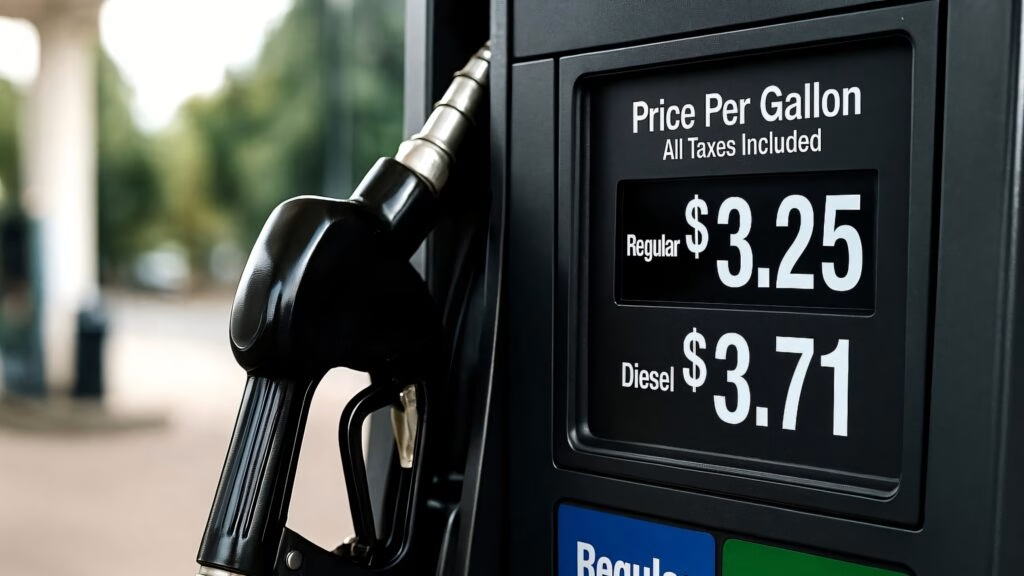Why Are Cleveland Gas Station Clerks Facing Fines Over Dirt Bikes and ATVs?
If you’re a gas station clerk in Cleveland, you might be surprised to learn that filling up a customer’s tank could land you a $100 ticket—if that customer rolls up on an illegal dirt bike or ATV. The city’s police department has started warning clerks that they could be fined for selling fuel to riders who aren’t supposed to be on public roads in the first place. The logic? By selling gas, clerks are allegedly enabling the chaos these vehicles cause on city streets.
But here’s where things get messy: Critics say the law is vague, rarely enforced, and puts an unfair burden on workers who often have little control over who pulls up to the pump. Since the ordinance passed in 2017, it’s only been used nine times. Five people were found guilty, one case was tossed out, and the rest? Nothing. Even after a recent incident where dozens of dirt bikes and ATVs swarmed a Cleveland street and fueled up at a local station, no new tickets have been issued.
What’s Behind the Law Targeting Clerks and Riders?
The city’s crackdown isn’t coming out of nowhere. Cleveland, like many urban areas, has seen a surge in groups of dirt bike and ATV riders taking over streets, weaving through traffic, and generally causing headaches for residents. On August 2, for example, surveillance cameras caught a swarm of riders on Denison Avenue, darting into oncoming lanes and stopping at a gas station to refuel. Police say these scenes are more than just a nuisance—they’re a safety risk.
That’s why Chief Annie Todd and her department are leaning on a 2017 ordinance that allows officers to ticket both the rider and the clerk who sells them gas. The idea is to cut off the fuel supply and, hopefully, curb the problem at its source. But with so few citations actually issued, it’s clear the law isn’t being used as a regular enforcement tool.
Are Clerks Really Expected to Police the Pumps?
Here’s where the law runs into real-world complications. Susan Moran, a local criminal defense attorney, points out the obvious: most clerks are busy, often working alone, and can’t be expected to vet every vehicle that pulls up. She asks, “Is the clerk supposed to be looking out the window to make sure only legal vehicles are using the pumps? This isn’t 1950—no one’s running out to fill your tank for you.”
There’s also a safety issue. Imagine a group of riders shows up, and the clerk tries to shut off the pumps or refuse service. That could easily escalate into a confrontation—something no minimum-wage worker should have to deal with. In practice, expecting clerks to enforce city ordinances is a recipe for confusion and, potentially, danger.
How Do Residents and Business Owners Feel About the Situation?
If you ask around, you’ll hear plenty of frustration. Residents are fed up with the noise and disruption caused by illegal riders, and some blame city leadership for not doing enough to restore order. Business owners, meanwhile, feel caught in the middle. They want to follow the law but worry about putting their employees in harm’s way or losing customers over something they can’t control.
A recent social media video showed residents venting their anger after hours of dirt bike chaos, with one person demanding that city officials “regain control of our city that we pay our property taxes for.” It’s a sentiment echoed in neighborhoods across Cleveland, where many feel the current approach isn’t working for anyone.
Is There a Better Way to Address the Problem?
Most experts agree that the current system isn’t cutting it. With only a handful of tickets issued in nearly seven years, the ordinance seems more symbolic than practical. Some suggest that a more effective solution would involve a mix of targeted police presence at trouble spots, better community engagement, and perhaps even changes to how gas stations are monitored.
Other cities have experimented with installing security cameras, increasing fines for repeat offenders, or even redesigning streets to discourage illegal riding. There’s no silver bullet, but the consensus is clear: putting the onus on clerks isn’t the answer.
What Should Clerks and Station Owners Do Right Now?
Until the law changes, clerks and owners are in a tough spot. The best move is to stay informed, communicate with local law enforcement about any concerns, and avoid putting themselves at risk. Some stations have started posting signs warning that fueling unregistered vehicles is illegal, but enforcement remains inconsistent.
If you’re a clerk, trust your instincts—don’t confront groups of riders, and report any suspicious activity to the police. Owners should consider security upgrades and work with neighborhood associations to advocate for fairer, more effective solutions.
The big takeaway? Tackling Cleveland’s dirt bike and ATV problem isn’t about perfection—it’s about smarter adjustments. Start with one change this week, and you’ll likely spot the difference by month’s end.

